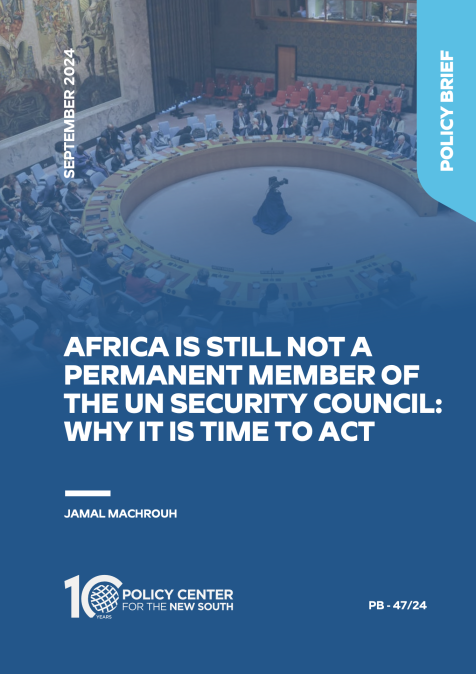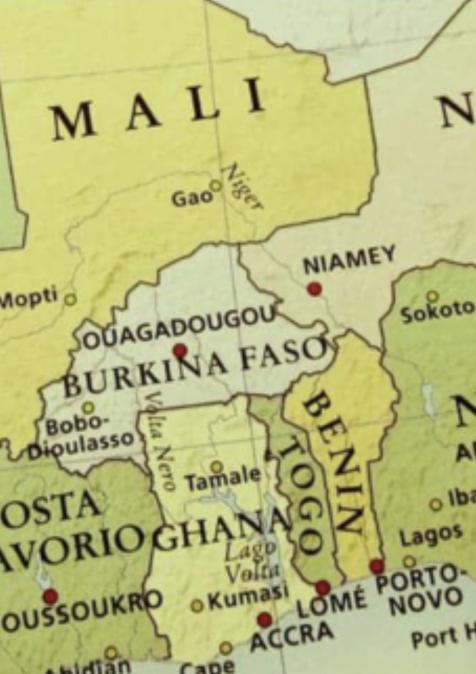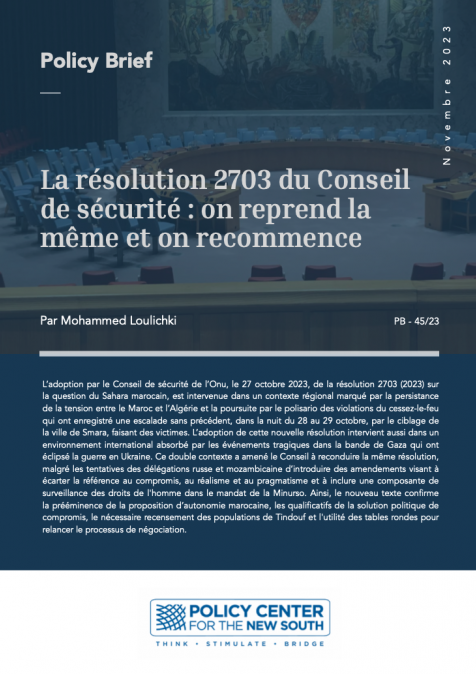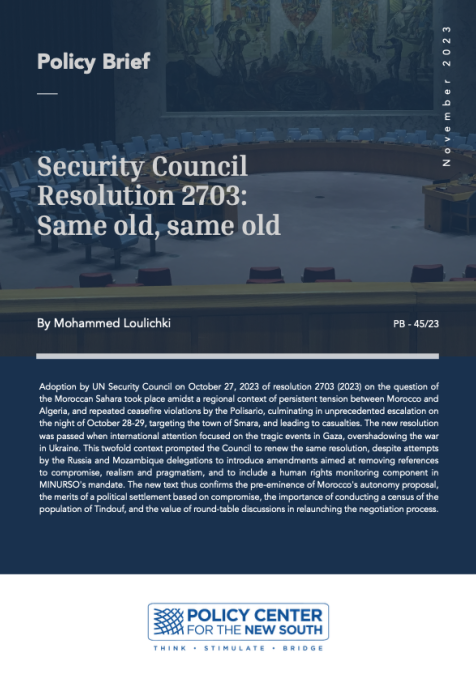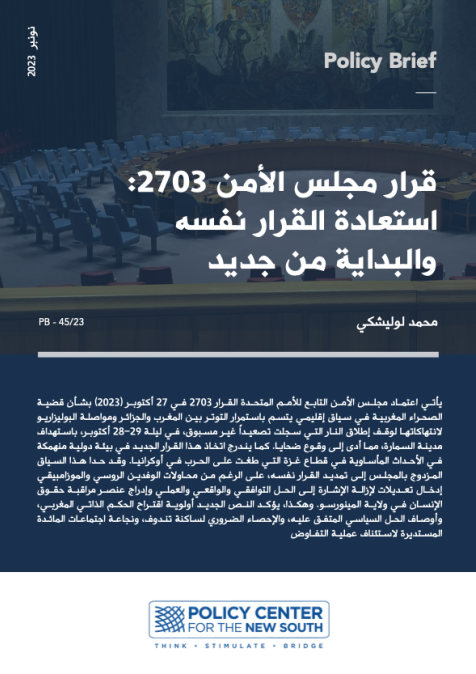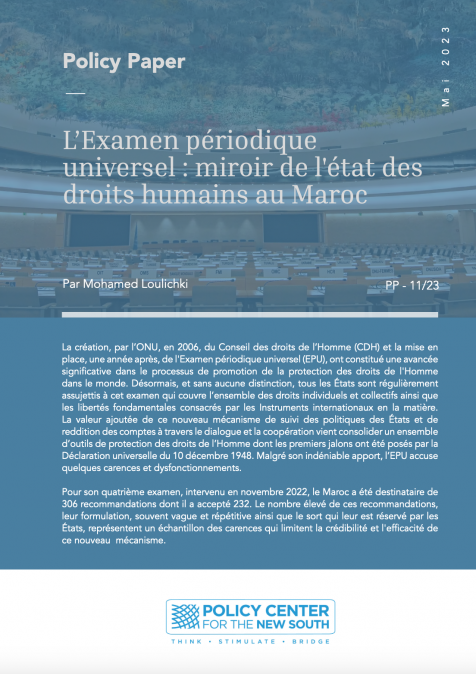Publications /
Policy Brief
Nearly 80 years after the establishment of the United Nations, Africa has yet to be granted a permanent seat on its most powerful organ, the Security Council. This "institutional discrimination" against African countries is both legally indefensible and politically untenable. Moreover, for Western nations seeking legitimacy and adaptation in a changing global geopolitical landscape, excluding 4 states representing over a billion people is strategically disadvantageous. This Policy Brief posits that a strategic window of opportunity now exists for the African continent to secure permanent representation on the Security Council. It urges African countries to fully seize this opportunity and proposes several modalities and recommendations for more effective inclusion of Africa among the permanent members of the Security Council.
Introduction
A strategic window of opportunity appears to be opening for the African continent in its quest to secure a permanent seat on the United Nations Security Council. Two powerful calls have recently supported the imperative of Africa's inclusion in the exclusive club of permanent Security Council members. On August 12, 2024, UN Secretary-General António Guterres, during a Security Council debate themed "Addressing Historical Injustice and Strengthening Africa's Effective Representation on the Security Council," called for urgent reform by granting Africa a permanent seat. A few weeks later, the U.S. Ambassador to the United Nations, Linda Thomas-Greenfield, stated before the Council on Foreign Relations that the United States supports granting two permanent Security Council seats to Africa. These two initiatives, when aligned with the context of the Summit of the Future held at the end of September 2024—with an agenda that includes discussions on pathways for UN reform—demonstrate the existence of an African momentum that the continent must seize to enhance its representation on the Security Council.
However, several questions remain regarding the trajectory that the issue of Africa's permanent inclusion on the Security Council will take, the context of its deployment, the possible avenues for its realization, and the stance African countries should adopt to maximize the strategic gains that could result.
Linking Current Events to Structural Realities
The ability to connect events to their geographical, historical, and political structures is crucial for a proper understanding of the positions and actions of international actors. In this light, one clear observation imposes itself: strategic decisions within key institutions that participate in the regulation of global affairs suffer from a monopoly by Western countries. This is evident in the Bretton Woods institutions, where voting rights are weighted according to member states' capital shares in the International Monetary Fund (IMF) and the World Bank (WB); in the World Trade Organization (WTO), with its Green Room[1] practices and a preference for consensus among major trading nations on significant issues. But it is decidedly within the United Nations, and particularly the Security Council, that the hierarchy of powers most overtly overshadows the equality of rights among countries. It is also within this body that the absence of the African continent and the silence of its representatives are most unjustly felt.
The Security Council—the central organ of the UN system, which, under Article 24 of the Charter, is entrusted with the primary responsibility for the maintenance of international peace and security, and in whose favor, under Article 12 of the same Charter, a formidable organic supremacy is enshrined over any other organ, including the General Assembly—is composed of permanent representatives from every continent except Africa[2]. As such, the African continent, which comprises 54 states and over a billion people, is simply not represented as a permanent member in the central organ for global regulation of peace and security. Thus, after military colonialism, political tutelage, and strategic domination, Africa continues to suffer from an "institutional discrimination" that keeps it distant from global negotiations and strategic decisions within the most important international organizations, including the UN and its Security Council.
If Africa and the world were to accommodate this state of affairs and law, the reconfiguration of international relations and the dynamics currently traversing the global scene make it very difficult for the West to preserve such a status quo, as it is legally indefensible, politically unsustainable, and strategically unfavorable.
Legally indefensible, first, because it constitutes in every respect a grave violation of a fundamental legal principle—that of equality among subjects regardless of their economic, political, or other power. This is all the more valid at the international level, where the sovereign equality among states is at the very origin of the birth and development of international law. Politically unsustainable, secondly, since it would fundamentally place the Western narrative on democracy in flagrant contradiction with the West's desire to establish the reason of the strongest as the central instrument of international regulation. What coherence would exist between the Western discourse on the promotion of human rights and democracy and the defense of a UN framework based on the law of force rather than the force of law? Strategically unfavorable, finally, because discrimination against African countries within the Security Council places them ipso facto in a situation predisposed to accepting anti-Western narratives.
On this last point, it is possible to argue that the war between Russia and Ukraine constituted a moment of truth for a West once steeped in its cultural certainties and sure of its material and doctrinal supremacy. The non-adherence of many African countries to Western resolutions targeting Russia created a kind of shockwave, the amplitude of which could be much greater in the scenario of a confrontation between the United States and China, particularly over the island of Taiwan.
It is this new context, marked by the emergence of new actors, new capacities, but also new narratives, that now structures the relationships of the new South with international powers. The voices of African countries are no longer alienated or aligned with the agenda of Western powers as in the past, but now pass through the filter of national interest. They are especially part of a pattern of national and regional emancipation and affirmation, one manifestation of which is the demand for greater equality on the international stage. This is why it is in the well-understood interest of global powers, including the United States, to create a new political and communicative space with the countries of the new South, of which Africa constitutes an important part. Global powers would benefit from making more concessions for greater mutual trust if they do not want to lose the South.[3] It is in this context that the willingness of major powers, notably those holding veto rights, to grant the African continent one or more permanent seats on the Security Council should be conceived.
Thinking about the Pathways to Realize Africa's UN Ambitions
The strategic window of opportunity available to the African continent to secure permanent seats on the Security Council deserves to be fully seized by the countries of the continent. They should especially establish the objective conditions for its realization. This would involve eliminating three major obstacles: inter-African rivalries, legal blockages, and gaps in operational capacities.
Indeed, one of the classic rhetorics used to postpone a reform of the Security Council indefinitely is the absence of consensus among countries and regions candidates for permanent seats. For instance, it is said that South Africa would not accept the designation of Nigeria, Algeria that of Morocco, just as Brazil would not accept the representation of the Latin American continent by Argentina or Mexico, and similarly for India and Pakistan regarding the Asian continent.
This statement, although exaggerated, contains some truth. This is why it is incumbent first upon the African continent to agree on the modalities and possibilities of choosing the countries or institutions that would represent the continent on the Security Council with permanent status. The more the continent devises a clear and consensual strategic offer on the ways of its representation, the greater its chances of rallying the international community to its cause.
Regarding the legal blockage, it is important to recall that any reform of the Security Council implies, a fortiori, a modification of the Charter. The Charter provides for two procedures that are distinct in form but similar in result. The first is an amendment via the General Assembly under Article 108, which requires a positive vote of two-thirds of the members with ratification of the same order and imperatively includes the five permanent members of the Security Council. The second is a reform through an international conference with adoption by two-thirds of the members, again with ratification by two-thirds, including imperatively those of the countries holding the right of veto. This legal difficulty explains the rarity of reforms undertaken at the UN. The composition of the Security Council has thus been reformed only once, in 1963, to increase its members from eleven to fifteen. Given that a reform through an international conference remains extremely improbable, it is at the General Assembly that Africa should act to satisfy the two-thirds requirement.
The last obstacle concerns the operational gaps between a Security Council governed by the requirements of speed and technicality and African bodies—both those of the African Union and regional communities—marked by slowness. On this point, the African continent would benefit from taking all necessary measures to be in phase with the operational requirements of the Security Council.
Regarding the modalities of including the African continent among the permanent members of the Security Council, three scenarios can be envisaged:
1- Representation through collective bodies: the African Union/regional communities;
2- Representation through member states; and
3- Hybrid representation: a state and an African institution, in this case the AU.
Nuancing the Debate Around the Right of Veto
The U.S. support for two permanent seats for Africa on the Security Council comes with a restriction: the permanency for African representatives would be without the right of veto. Such a proposal could reflect the unfinished process of liberating Western thought from discriminatory perceptions against African countries. However, in our view, such an omission, although morally and legally scandalous, should not constitute an obstacle to the African continent's access to permanent membership on the Security Council, for at least three main reasons:
1- Advocating for the Abolition of the Veto: The African doctrine to maintain should be that of the suppression of the right of veto, not its proliferation. On this point, Africa could provide solid proof of the capacity and utility of an actor being a permanent member of the Security Council without necessarily holding the right of veto. In essence, a successful African experience on the Security Council as a permanent member devoid of veto power could foster a positive dynamic towards the interest and feasibility of a renunciation by the current five permanent members of their veto rights.
2- Strategic Accumulation Over Renunciation: Another perspective on the interest of an African accession to the rank of permanent member, even without the right of veto, favors the strategy of accumulation over that of renunciation. It is more advisable for Africa to opt for a two-step approach that would start with obtaining a permanent seat and continue later with a request for the right of veto, rather than refusing the former and waiting for all conditions to be met for a full admission of the continent to the Security Council. It must be noted, moreover, that after several decades since the call of the Organization of African Unity (OAU) and the Ezulwini Consensus[4], Africa remains absent from the club of permanent members.
3- Demystifying the Veto's Perceived Power: Finally, it is necessary to disprove a widely shared perception but devoid of any legal or political relevance. The right of veto does not have a positive or offensive scope but rather a negative or defensive character. It is by no means a capacity to impose but merely a capacity to prevent. A permanent member enjoying the right of veto, whatever its power, cannot impose the adoption of a resolution but only block such a resolution. The episode of diplomatic negotiations before the American invasion of Iraq in 2003 perfectly illustrates this reasoning. Indeed, to have a resolution adopted in the Security Council, the initiating member must gather 9 out of the 15 Council votes. And here, the important role that a member without veto power can play becomes very clear. In the same example of the invasion of Iraq, the American project for UN endorsement of its Iraqi venture was not blocked by a French or Russian veto but by the lack of support from many countries then sitting as non-permanent members, three of which were countries from the African continent.
Recommendations
An adage says, "If you're not invited to the table, you're on the menu." Africa has often been a subject of discussion among the permanent members of the Security Council but never an active player. Yet, out of the 193 member states of the UN, 54 are African. The continent is also the theater for many peacekeeping operations and is an indispensable provider of UN peacekeeping forces. This situation of historical injustice and legal-political aberration must be rectified as soon as possible. It concerns the credibility, effectiveness, and legitimacy of the entire UN edifice. The challenge is significant: to reform the UN to adapt to a world that is, if not steeped in the risk of strategic derailment, at least prey to significant geopolitical turbulence.
Three recommendations could be formulated for Africans to enhance and accelerate the movement toward the inclusion of Africa among the permanent members of the Security Council:
1- Fully seize the strategic opportunity offered by the current global geopolitical landscape, which is largely favorable to granting institutional advantages to Africa;
2- Develop a consensual and balanced African proposal on the modalities of the continent's representation within the Security Council. This proposal would benefit from being conceived and adopted following debates among African leaders at the level of Heads of State and Government;
3- Establish a code of good conduct to ensure that the African states/entities chosen to sit as permanent members do not use the UN system and the Security Council to satisfy their national interests to the detriment of the collective African interest.
[1] The Green Room is the informal name for the conference room of the WTO Director-General. It is used to refer to meetings involving 20 to 40 delegations, typically at the level of heads of delegation from the most influential countries.
[2] This statement should be nuanced because, while South America is geographically attached to North America, geopolitically it constitutes a distinct entity.
[3] In an article published on September 18, 2024, in Foreign Policy, Sophie Eisentraut writes, "It seems that reviving multilateralism does not necessarily require rekindling faith in the value of international rules and principles. Instead, at the United Nations Summit of the Future, Western countries could attempt to regain their credibility by demonstrating their serious commitment to implementing the international rules and principles they constantly claim to defend." ("Can the West Revive Multilateralism?" https://foreignpolicy.com/2024/09/18/global-south-survey-multilateralism-msc-unga/?download_pdf=true)
[4] The Ezulwini Consensus, adopted by the Conference of African Heads of State and Government in 2005, stipulates that full representation of Africa on the Security Council depends on allocating two permanent seats with veto rights and three non-permanent seats to Africa (in addition to the two already held). See "How to Reform the Security Council? State of Affairs, Critiques, and Projects," Paul Gacem and Alexandra Novosseloff, in Le Conseil de Sécurité des Nations Unies entre Impuissance et Toute-Puissance, CNRS Editions, 2016, p. 275.

